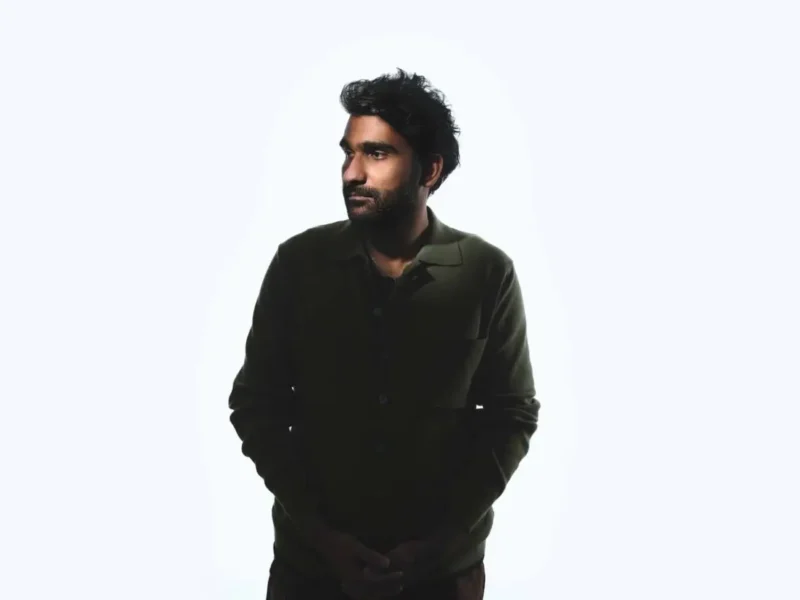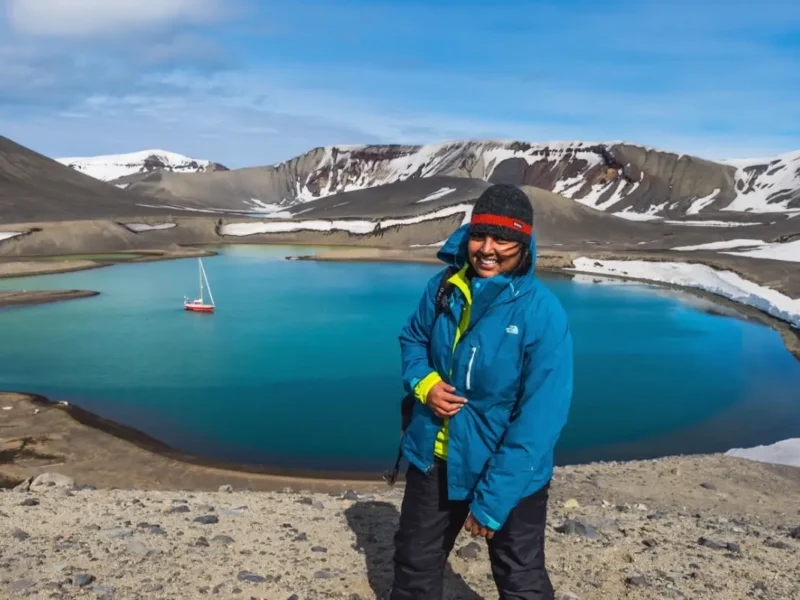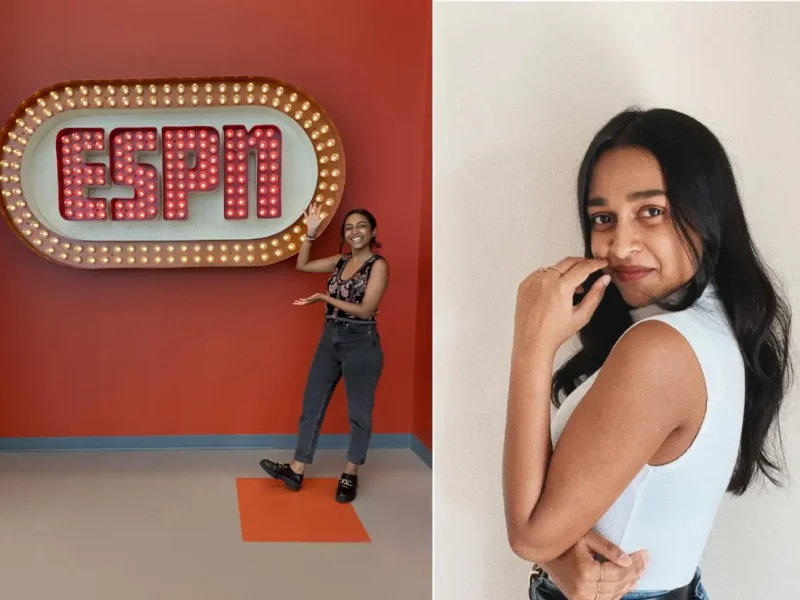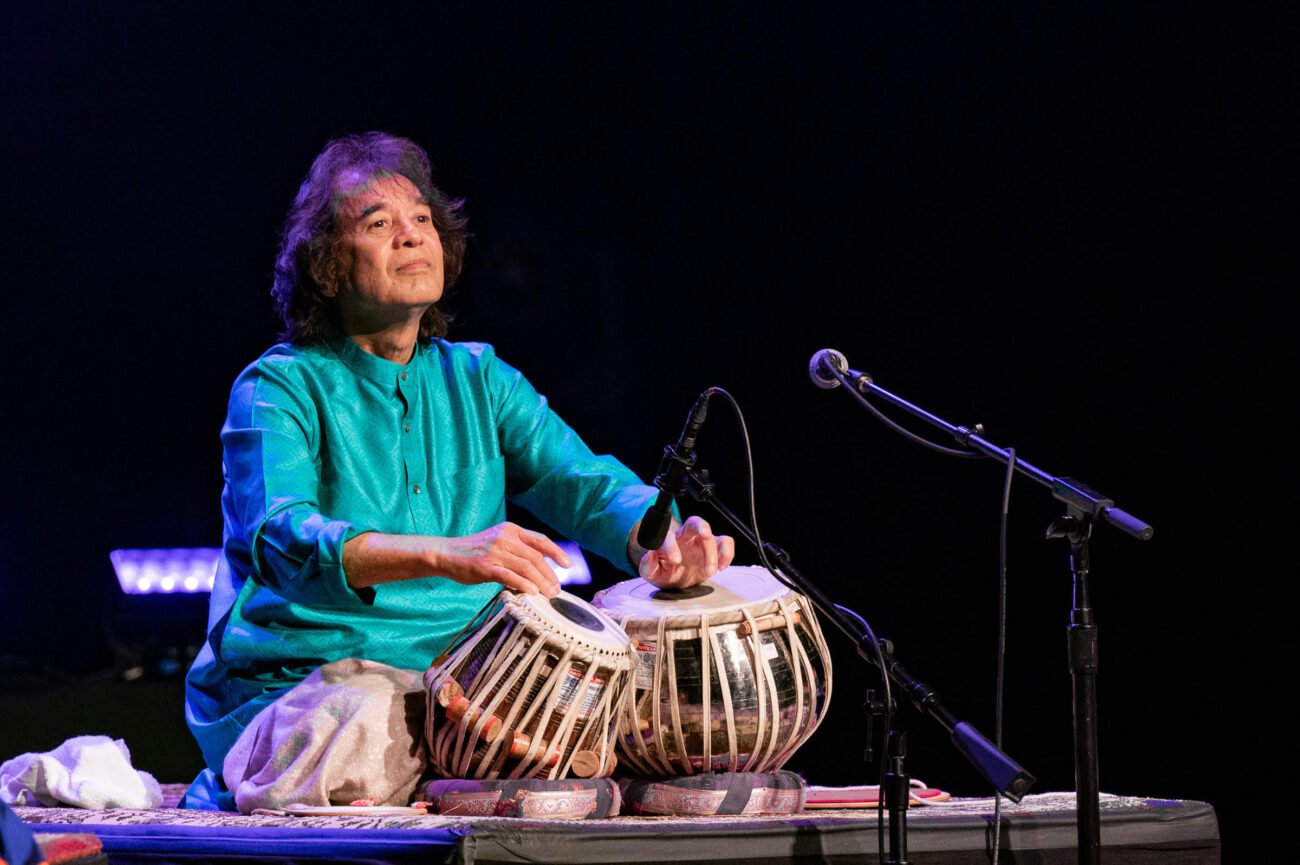
For Zakir Hussain, The Tabla Is Of His Flesh And Blood, An Extension Of His Being
Photo Credit: Jim Bennett
By NIMMI RAGHUNATHAN
Ustad Zakir Hussain is 72.
Who knew? On stage,the percussion master is the forever youthful one with his dancing curls,high energy, and fingers that flash quicker than a hummingbird’s wings.
Just as it is hard to pin him down about his physical age, Hussain defies categorization otherwise too: he is gloriously, a bit of everything. In a Bollywood thumping world, a purist who can get the tabla to sing and stun; one who declines performing at social events where music is not the purpose of the gathering. In a traditional world, he is the adventurer who daringly ventures into new mediums and new sounds.
But no matter which aspect you encounter him in first, it becomes quickly obvious he is, unarguably, brilliant. To witness him playing the table on stage is to have the mind, intellect, and heart in pleasing synch.
A grateful world has accordingly showered him with every accolade possible – Padma Vibhushan, Grammy, National Endowment for the Arts Fellowship…it is possible he himself can’t recall or recount all of them.
Hussain, needs no introduction but the salient fact that he is the son and student of the inimitable Ustad Allahrakha Qureshi bears repeating, for it is rare for an offspring to follow so splendidly the path set by a parent and guru.
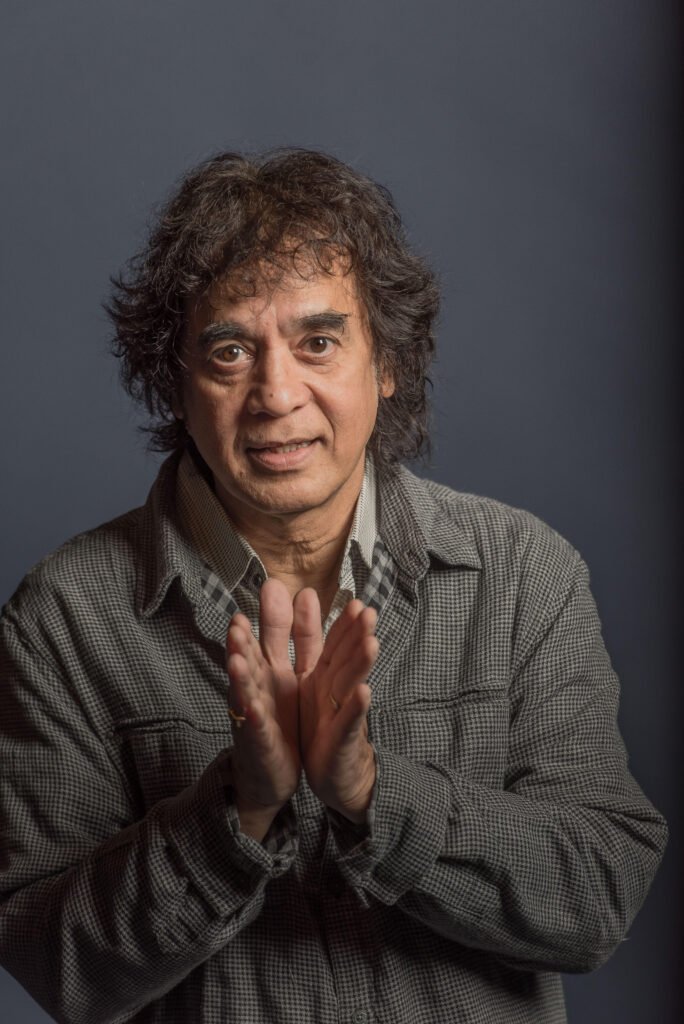
On the eve of his upcoming tour ‘Masters of Percussion,’ (*see more below) where every two years for several decades now, Hussaingathers up accomplished musicians, mostly percussion, and presents them in America, he answered a few questions for India-West:
Q: Can you explain your relationship with the tabla? What does it mean to you?
A: It is an inseparable part of me; it is for me of my flesh and blood. It took a long time to cultivate this oneness and have the tabla spirit embrace me as kin. I now can speak with my guru/father in the language that transcends mere words.
Q: What do you think your father would say if he saw you today?
A:He would probably point out my very visible faults that I need to address and correct in my playing. He was a perfectionist, something that is far in the distance for me yet.
Q:Is all music spiritual or is it to be found mainly in the traditions espoused by ustads and vidwans of the past?
A:For me all music to a degree,is spiritual.It depends also on what is defined as spiritual. A musician’s creativity involves exposing one’s spirit to the audience in whatever mood the said spirit might be in. I don’t think that vidwans and ustads have a monopoly over this idea.
Q: Since rhythm’s language is so universal, does that make it easier for you to collaborate with other musical forms than say a veena or sarangi player?
A:Yes, it is much easier for a rhythm player to collaborate with other rhythm maestros representing different traditions.
Q: What has been the fulfillment for you in your collaborations with other masters like Bela Fleck or John McLaughlin?
A:Relationships between musicians have to be cultivated over time and must go through many layers of understanding to arrive at a comfort level point, only then can joyful and ecstatic music be made. Music should not be created as a 9 am to 5 pm discipline.Music will awake when it wants and the positive energy it entails overcomes any negative feeling.
Q: There is a lot of debate on the issue of nepotism in Indian cinema. But hasn’t this been the case in Indian classical music and dance too?
A: (In music) A guru does not go looking for a talented disciple, the student must walk the extra mile to find the right guru.
Q: ‘Zakir Hussain and Masters of Percussion.’ What has changed in 30 years with audiences?
A:Audiences the world over have become well informed and more discerning. Digital platforms allow the audience to educate themselves with any and every form of art out there. It is very satisfying to get on stage these days and not have to worry about the fans in the theater not following that which is being created for them on stage.
Q: What happens when all the Qureshis are under one roof for a day?
A:There is plenty of food, laughter, and good times when the Qureshis assemble. Love is all around; it is indeed a wonderful place.
*For the past 30 years, Zakir Hussain has served curator, conductor and producer for his series, ‘Zakir Hussain and Masters ofPercussion,’ which brings the cream of Indian music and world percussion to tourAmerica and Europe. It began as a platform for both popularand rarely heard rhythm traditions from India. Over the years, Hussain has sought and unearthed lesser-known folkand classical traditions which feed into the greater stream of Indian music, playing aneducational role in affording them greater visibility, as well as introducing them toaudiences in the West. This year, it will include Sabir Khan (sarangi), Navin Sharma (dholak), Tupac Mantilla (from Columbia) and Melissa Hie (playing the djembe, from Burkina Faso).
For schedule and details: https://zakirhussain.com/tour/


